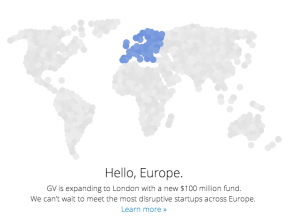 It has been a long time since the startup industry in Europe expanded. Emerging European companies have not been paid any attention due to their slow scaling, and their home country’s stagnant economy. However, this has all changed. There’s been a large influx of investments in European startups throughout the past year as the world began to recognize the desire to scale to a global level by new European companies. Additionally, venture capital in Europe is far less expensive than it is in the United States and Asia, giving investment companies access to new talent for a fraction of their regular cost.
It has been a long time since the startup industry in Europe expanded. Emerging European companies have not been paid any attention due to their slow scaling, and their home country’s stagnant economy. However, this has all changed. There’s been a large influx of investments in European startups throughout the past year as the world began to recognize the desire to scale to a global level by new European companies. Additionally, venture capital in Europe is far less expensive than it is in the United States and Asia, giving investment companies access to new talent for a fraction of their regular cost.
Corporations that have started to shift their focus over to Europe include Salesforce.com and Google. Governments all over Europe are promoting entrepreneurial ventures, and new companies need the capital. For example, Microsoft has not only expanded its venture capital program in Germany, it is also partnering with existing German companies. Google Ventures has infiltrated Europe and the Netherlands as an investor. Both are making money.
These investing corporations are really changing the culture of innovation in Europe. Venture capital declined initially because startups in Europe were known to be stagnant. They did not grow quickly enough and were not aspiring to scale to a global level, being content with scaling only to a regional level, and therefore made money slowly. Only recently, when California firms decided they wanted to expand the scope of their investments, did venture capital firms recognize the potential in young European companies. Google Ventures may have begun this trend when it announced it was opening a venture capital firm in London. They referenced popular companies that had already emerged from Europe, such as SoundCloud, to justify their decision.
Since this is such a new development in the venture capital world, it is difficult to discern the origin and the effects of the European venture capital movement. There exists no clear rationale as to why large companies began investing in European startups, although the why is not as important as what these investments could bring. There is a lot of potential in young European companies, and pouring money into these technology-based businesses could significantly boost Europe’s economy and showcase European technology talent. However, the implications that the venture capital expansion has for the rest of the world are still unknown. The low cost of venture capital in Europe makes it an attractive focus for all venture capital firms, and we will have to see if this has repercussions for startup funding in other, more expensive, parts of the world.
That being said, it is great to see venture capital blooming in Europe. This is an exciting time for venture capital firms and European startups alike, and it will be interesting to see where these blossoming young companies take the tech industry next.
To read more about the venture capital expansion in Europe, check out the Seattle Times.
 On May 5th Todd Crosland, the CEO of Seed Equity Ventures, launched a new venture seed fund under Seed Equity Capital Partners, LLC targeting $10 million. This fund was developed to invest in early stage technology startups and will benefit from the vetting, sourcing and due diligence process that is performed by the Seed Equity investment team. The fund is permitted to engage in public fundraising endeavors, since it was filed with the SEC under Rule 506(c). The fund has already produced three investments, including a startup that came out of Techstars London in the UK, Spatch, Inc.
On May 5th Todd Crosland, the CEO of Seed Equity Ventures, launched a new venture seed fund under Seed Equity Capital Partners, LLC targeting $10 million. This fund was developed to invest in early stage technology startups and will benefit from the vetting, sourcing and due diligence process that is performed by the Seed Equity investment team. The fund is permitted to engage in public fundraising endeavors, since it was filed with the SEC under Rule 506(c). The fund has already produced three investments, including a startup that came out of Techstars London in the UK, Spatch, Inc.